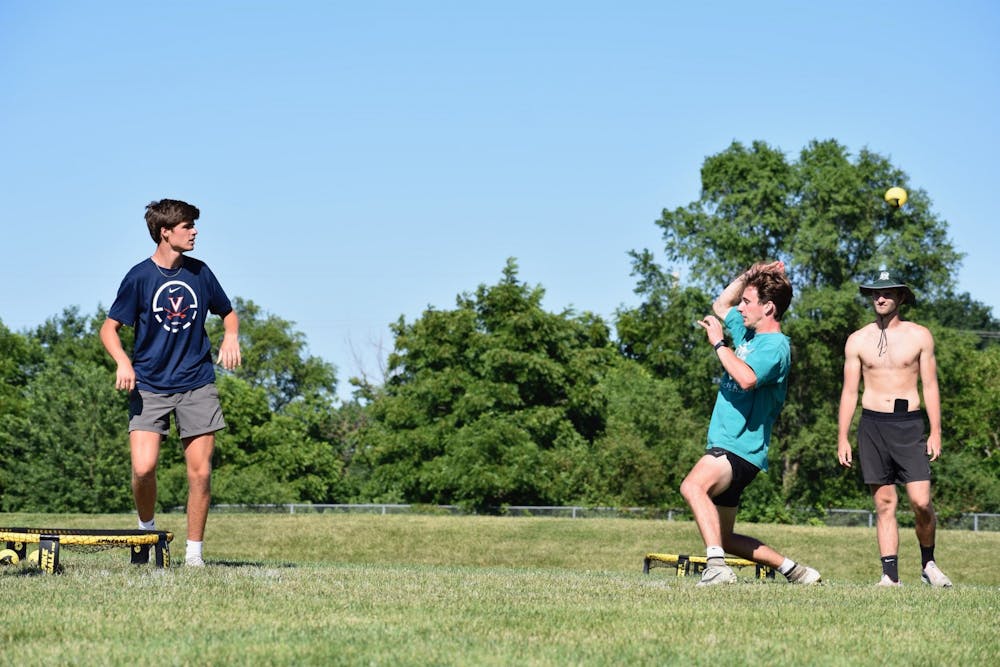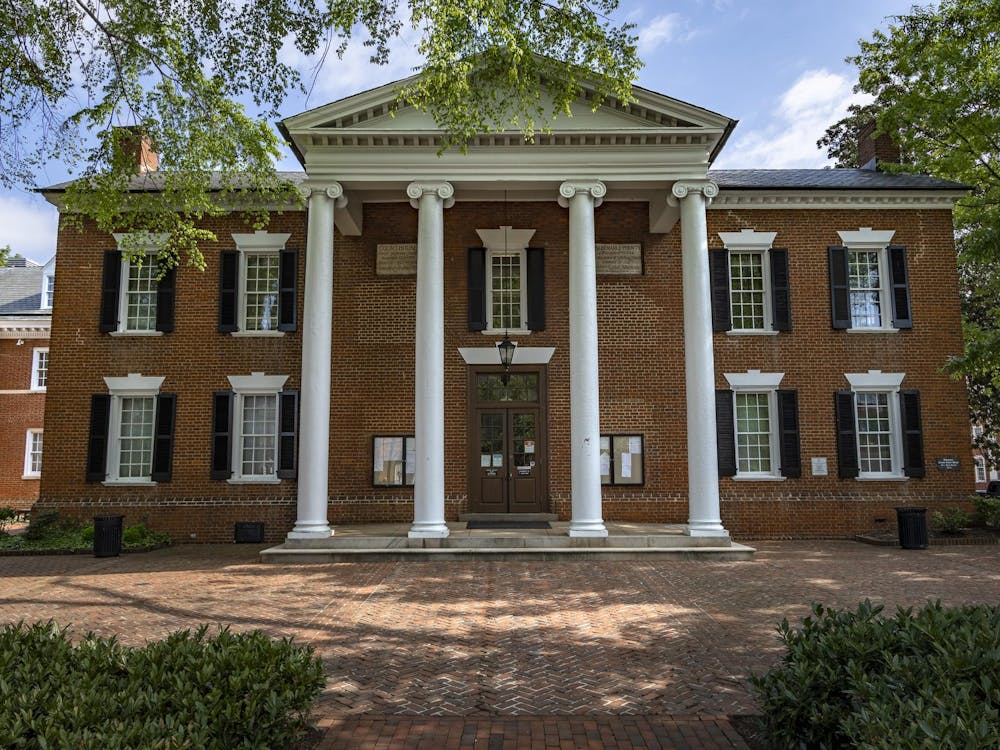It’s early autumn, and a familiar sound is echoing outside the Observatory Hill Dining Hall. Scattered across the sprawling field are nets, serving only to uphold the weight of a small, yellow ball. The only sound is rubber rebounding off the palms of countless students, complementing the constant chatter around each circular net. Dozens of worn-down circles on the field’s grass are the mark of feverish competition.
Spikeball is a game founded in 2007 that is like a combination of volleyball and four-square. Since then, it has evolved from a backyard hobby into a competitive sport with a professional circuit.
How did a laid-back, four-person game turn into an uber-competitive sport with sponsored athletes and ESPN television coverage? Third-year College student Joe Bondi and fourth-year Engineering student Joe LaRuffa are two of the top players for their age in the Eastern region and members of the University’s Club Roundnet — the technical name for the game which employs the Spikeball-brand set. Bondi has risen through the ranks as the No. 1 player in Virginia. LaRuffa is not far behind him, currently sitting at No. 4 in the most recent power rankings from the Virginia Roundnet Association.
However, neither player found success instantly. Bondi cut his teeth in several tournaments alongside a partner from Virginia Beach, initially tasting some defeats in a more competitive landscape. Thanks to tournament exposure, Bondi ultimately joined forces with a partner to whom he had previously lost in order to gain some more traction with the sport.
In a similar vein, LaRuffa played throughout high school yet did not anticipate the step-up in competition once he arrived in Charlottesville in 2019. He found a stark contrast between the style of Spikeball from his high school years to the competitive edge of the club, yet the camaraderie helped him along.
“[Joining Club Roundnet] transitioned into participating in a tournament with U.Va. in the fall of my first year, and that was super fun because I got to meet a lot of people from a lot of different schools,” LaRuffa said.
The communal aspect of Spikeball is one of the key drivers to its growth. As a niche competitive sport, the close community has allowed players to make connections they otherwise wouldn’t have.
“My personal favorite aspect of Spikeball is just the community,” Bondi said. “There are a lot of people who went to one tournament, and now they’re addicted to Spikeball just because of the atmosphere.”
Club Roundnet started in 2018, one year before LaRuffa enrolled at Virginia. While the club was founded with competition in mind, Bondi and LaRuffa said the club was not aware of the talent level outside of Charlottesville. Despite the second-place finishes of last year’s club roster at both sectional tournaments, the 2019 group did not fare as well in outside competitions.
“It was competitive focus without a lot of competitive awareness,” Bondi said, in regards to the mindset of Club Roundnet in the first couple years.
Nowadays, a typical club practice consists of an hour of drills and an hour of in-game implementation of those drills. Drills largely focus on the fundamental aspects of the game — hitting, serving and movement around the net. Moreover, players are beginning to get used to new rule implementations such as the no-hit zone — a foot-and-a-half wide circle around the edge of the net designed to make offense more difficult, prolong rallies and improve watchability.
With a tryout process, a team of around 25 players and an elevated travel roster, Club Roundnet is growing healthily and continues to compete at high levels with other college teams. However, it’s important to the club that casual play and the general roundnet community is encouraged as well.
“Last year, we tried to run a WhatsApp groupchat just to allow casual players to have a platform to communicate,” LaRuffa said.
The group chat included over 100 people and helped foster passion for the game for players who may have just discovered Spikeball and wanted to play more without the intensity of practice and tournaments.
Spikeball has exploded in the past several years. So where does the game go from here? The top tournaments and professional scene have thousands of dollars of prize money up for grabs in three types of tournament events — Challenger events, Major events and the Championship event. ESPN has broadcasted several Spikeball events, and the nation at-large has seemed to begin to turn its eyes towards the next big backyard sport. However, Bondi and LaRuffa aren’t exactly bursting with confidence that the game can break out of its small shell.
“I don’t think it’s super watchable right now, but I know a bunch of people high up in the Spikeball scene are trying to shift that and make it more watchable,” Bondi said. “Nationals will be on ESPN this year … so that’s definitely growth.”
It will be interesting to see if the sport continues to ascend. Despite its potential limitations as an attractive option for television, Spikeball has undoubtedly left a mark on the University in terms of its rapid growth over the past several years. Ultimate frisbee, KanJam and other backyard sports have enjoyed success on college campuses and still have a foothold, yet Spikeball has successfully blended competition and entertainment into one. Whether you seek a pickup game, national tournament or a casual rally on the beach to pass the time, the sport has developed to check the boxes.







